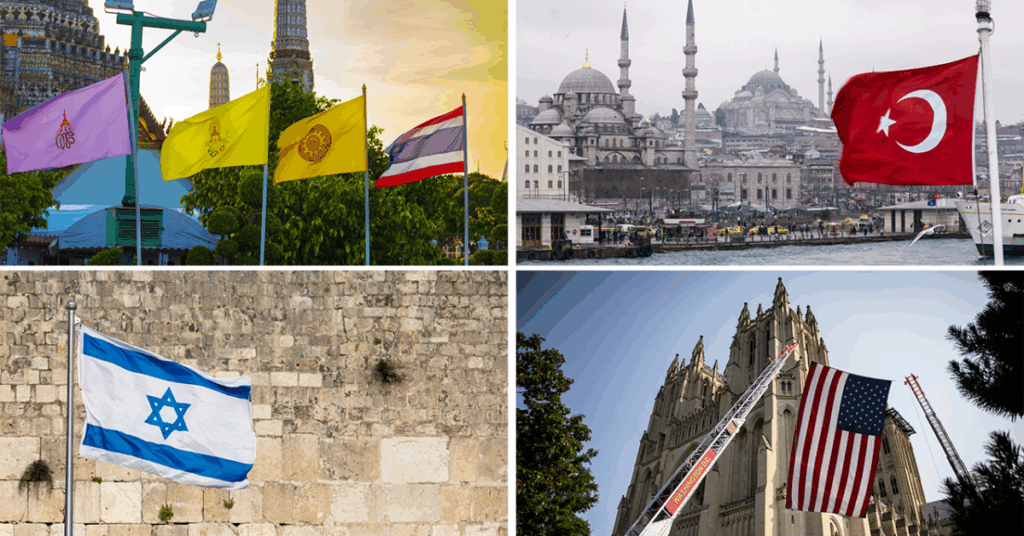The Pew Research Center conducted a survey to explore the role of religion in public life across 36 countries, examining various religions like Buddhism, Christianity, Hinduism, Islam, and Judaism. The study involved over 41,000 adults and focused on attitudes towards religious nationalism, defined as the belief that a country’s historical religion should influence national identity and policymaking.
The survey identified responses to four key questions that assess religious nationalism:
1. Importance of historically predominant religion to national identity.
2. Preference for national leaders to share religious beliefs.
3. Desired influence of religious texts on laws.
4. Influence of religious teachings versus the will of the people in conflicts.
Findings reveal significant variation in religious nationalism. For instance, while less than 1% of adults in Germany and Sweden identified as religious nationalists, rates were over 40% in Indonesia and Bangladesh. In the U.S., only 6% meet the criteria for religious nationalism. Comparatively, high-income countries show lower rates of religious nationalism, while middle-income nations exhibit higher levels of adherence to religion in societal structures.
Demographics influencing religious nationalism include prayer frequency, age, education level, income, and political alignment. Countries like Turkey, Indonesia, and Nigeria demonstrate a complex interaction between religious identity and governance, with majorities affirming that a state can be both democratic and adhere to a predominant religion.
Overall, the report emphasizes the nuanced ways religion intertwines with national identity and governance across varying economic and cultural contexts.



